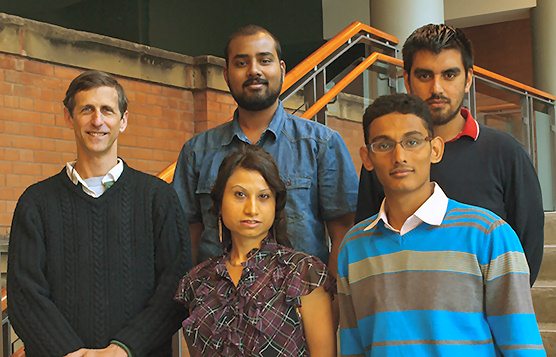goes to…APCaRI member Russ Greiner

Image of DREAM challenge winners, Russ Greiner pictured on far left.
Dr. Russ Greiner, Canada CIFAR AI Chair, Fellow-in-Residence at Amii, University of Alberta Professor, and APCaRI member, received the CAIAC Lifetime Achievement Award announced at the Canadian AI Conference on May 27, 2021. This the highest honour bestowed by CAIAC, given in recognition to researchers who have distinguished themselves through outstanding research excellence in AI during the course of their academic career. APCaRI congratulates Russ Greiner for his well-deserved CAIAC Lifetime Achievement Award!
“Using machine learning techniques to produce effective, evidence-based personalized treatment”
The main foci of Russ Greiner’s current work are (1) bioinformatics and medical informatics; (2) learning and using effective probabilistic models and (3) formal foundations of learnability. He has published over 200 refereed papers and patents, most in the areas of machine learning and knowledge representation, including 4 that have been awarded Best Paper prizes.
One of these four papers was an entry into an international machine learning competition hosted by DREAM, an open-science effort dedicated to improving health and health care through crowdsourcing problem-solving. DREAM’s challenge was to develop an algorithm to predict which prostate cancer patients would respond to certain treatments and which would follow the medication regimen. The algorithm could be used by clinicians to help chose the best treatment plans for the patient.
Greiner and a team of students tied for the top place in the competition against over 50 teams from around the world. Then the winners collaborated to create an even better solution to the problem!
The paper, “A DREAM Challenge to Build Prediction Models for Short-Term Discontinuation of Docetaxel in Metastatic Castration-Resistant Prostate Cancer,” was published in JCO Clinical Cancer Informatics (doi: 10.1200/CCI.17.00018). The publication was named one of the three best papers for the IMIA Yearbook of Medical Informatics 2018 (‘Cancer Informatics’).